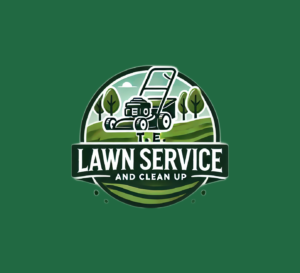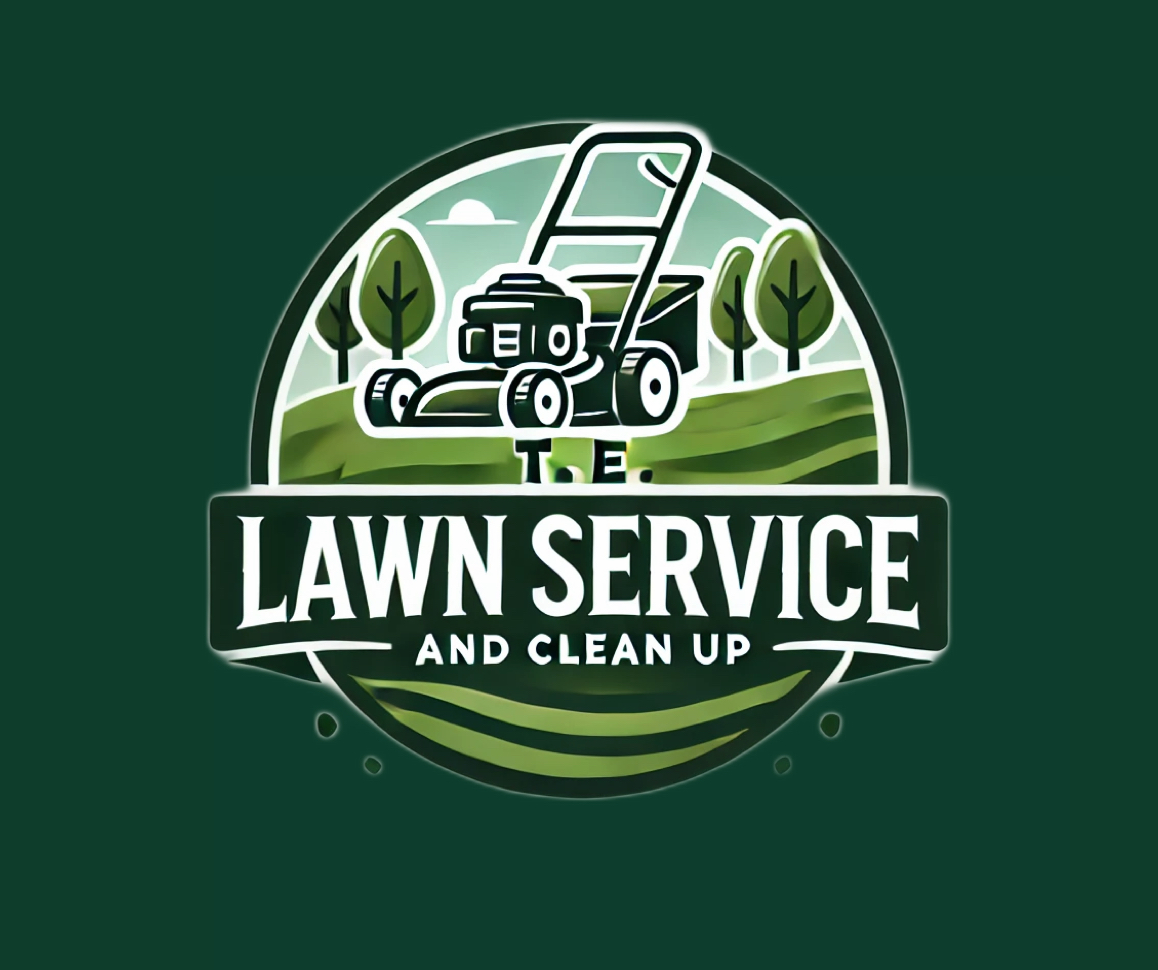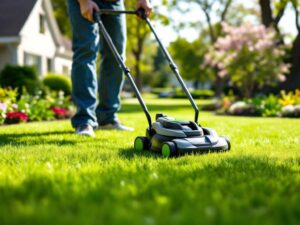A healthy, green lawn is one of the best features of a beautiful home. While mowing, fertilization, and weed control all play important roles, water is the most essential element for strong grass growth. In Atlanta, where summers are hot and humid and rainfall can be unpredictable, knowing when and how to water your lawn makes the difference between patchy brown turf and a lush green yard.
At TE Lawn Service and Clean Up, we specialize in maintaining healthy lawns that thrive in Atlanta’s unique climate. Many homeowners waste time and money by watering at the wrong times or using inefficient methods. This guide explains the best times to water your lawn, how much water to apply, and how to adjust your routine for Atlanta’s conditions.
Why Proper Watering Matters
Watering may seem simple, but it is one of the most misunderstood aspects of lawn care. Too much water creates shallow roots, disease, and wasted resources. Too little water leaves grass dry, brittle, and vulnerable to weeds.
The benefits of proper watering include:
- Stronger root systems that resist drought
- Greener, more vibrant grass color
- Reduced weed growth since healthy lawns crowd out invaders
- Lower water bills with efficient practices
Atlanta homeowners who water correctly enjoy healthier lawns with less effort.
The Best Time of Day to Water in Atlanta
The timing of your watering has a major impact on results. In Atlanta’s hot climate, watering at the wrong time means most of the water evaporates before it reaches the roots.
- Morning (6 a.m. to 10 a.m.) is the best time to water your lawn. Temperatures are cooler, winds are lighter, and water can soak into the soil before the sun becomes intense. Grass blades also dry quickly after watering, reducing the risk of fungal disease.
- Early evening (around 5 p.m. to 7 p.m.) is the second-best option. This allows enough time for the grass to dry before nightfall. Wet grass overnight can encourage disease.
- Midday watering should be avoided because the hot sun causes rapid evaporation, wasting water and stressing the lawn.
- Late night watering is also discouraged because water sits on grass blades too long, creating conditions for fungi and pests.
By sticking to morning or early evening, you maximize efficiency and lawn health.
How Often to Water Your Lawn in Atlanta
Frequency is just as important as timing. Many homeowners make the mistake of watering lightly every day, which encourages weak, shallow roots. Instead, you should water deeply and infrequently.
- Most Atlanta lawns need about 1 to 1.5 inches of water per week, either from rainfall or irrigation.
- Divide this into two watering sessions of about 30 to 45 minutes each, depending on your sprinkler system.
- During especially hot weeks, you may need an additional light watering to keep grass from becoming stressed.
Deep watering encourages roots to grow down into the soil, making your lawn more drought-resistant and resilient.
Adjusting for Atlanta’s Climate
Atlanta’s weather creates unique challenges for lawn watering. Summers are hot and humid, with frequent afternoon thunderstorms. Winters are mild, and spring and fall bring fluctuating rainfall.
Here is how to adjust your watering schedule for the seasons:
- Spring: Begin watering consistently as temperatures rise in March and April. Monitor rainfall levels and only irrigate when natural rainfall is insufficient.
- Summer: Increase watering frequency during heat waves, but do not overwater. Rely on morning watering to reduce evaporation.
- Fall: Reduce watering as temperatures cool. Fescue lawns, which thrive in fall, may need regular irrigation if rainfall is light.
- Winter: Warm-season grasses such as Bermuda and Zoysia go dormant in winter and need little to no supplemental watering. Only water during extended dry periods.
Watering Based on Grass Type
Different grass varieties common in Atlanta require slightly different watering habits.
- Bermuda grass: Requires frequent watering in summer but is drought-tolerant when established. Best results come from 1 inch of water weekly.
- Zoysia grass: Needs less water than Bermuda but still benefits from deep watering once or twice a week.
- Centipede grass: Low-maintenance grass that prefers less frequent watering. Too much water leads to disease.
- Tall Fescue: Cool-season grass that needs consistent moisture in spring and fall. Water deeply during hot summers to prevent stress.
Knowing your grass type helps you avoid overwatering or underwatering.
How to Measure Water Output
It can be difficult to know exactly how much water your lawn is receiving. A simple trick is to place small containers, such as tuna cans, around your yard while watering. Run your sprinklers and measure how long it takes to fill the containers with half an inch of water. Double that time to reach one inch.
This method ensures you apply the correct amount without waste. Adjust sprinkler times as needed to match Atlanta’s rainfall patterns.
Signs You Are Watering Incorrectly
Your lawn will show signs if it is not receiving the right amount of water.
- Too little water: Grass blades curl, footprints remain visible when walking across the lawn, and the grass appears dull or grayish.
- Too much water: Soil feels soggy, mushrooms appear, and weeds like crabgrass thrive.
By paying attention to these signals, you can quickly correct your watering habits.
Smart Watering Tips for Atlanta Homeowners
Beyond timing and frequency, these tips will help you water more effectively:
- Aerate your lawn annually so water penetrates clay soil more easily.
- Water in zones to ensure even coverage, especially in larger yards.
- Use a rain gauge or weather app to track weekly rainfall and adjust accordingly.
- Install an irrigation system with a timer for consistent watering.
- Avoid watering during high winds, which blow water away from its target.
Mistakes to Avoid
Many homeowners in Atlanta make small mistakes that waste water and harm grass. Avoid these common errors:
- Watering every day for short periods instead of deep sessions.
- Letting sprinklers run onto sidewalks and driveways.
- Watering at night, which encourages fungus.
- Ignoring local watering restrictions during drought conditions.
Correcting these habits saves money on your water bill and keeps your lawn healthy.
Professional Lawn Watering Solutions
While DIY watering is possible, many Atlanta homeowners prefer the convenience of professional care. TE Lawn Service and Clean Up provides comprehensive lawn maintenance services that include irrigation checks and watering schedules tailored to your yard.
Our services include:
- Evaluating sprinkler systems for efficiency
- Adjusting watering schedules based on grass type and season
- Combining watering with fertilization, mowing, and weed control
- Offering complete lawn care packages for year-round results
By trusting TE Lawn Service, you ensure your lawn receives the right care at the right time.
Conclusion
Watering is one of the most important aspects of lawn care, yet it is often done incorrectly. For Atlanta homeowners, the best time to water is in the early morning or early evening, with deep watering once or twice a week. Adjusting for the season, monitoring rainfall, and knowing your grass type all contribute to success.
When done correctly, watering helps create a greener, healthier, and more resilient lawn. For those who want guaranteed results without the hassle, TE Lawn Service and Clean Up offers expert lawn care services in Atlanta.
Call TE Lawn Service today to schedule professional lawn care and enjoy a greener, healthier yard.




